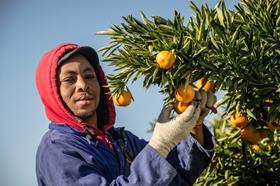
South African citrus growers exporting their fruit to the US will start the season with the certainty that they will be included in the lucrative American Growth and Opportunities Act (AGOA).
The long-standing fight by South African chicken producers to keep the US out of its market seems to have come to an end with the news that the first shipments of US-produced chickens has arrived in the country, and will be sold by one of the major supermarket groups.
Led by President Obama, the US authorities set mid-March as the deadline for the first chickens to be displayed on South African supermarket shelves - with the threat that all South African agricultural products would be excluded from AGOA.
Those with the most at stake are the South African chicken producers, who claimed that the cheaper imports would ruin their business and result in job losses.
On the other hand, South African citrus growers have built for themselves a substantial market in the US under the previous AGOA act over the past 15 years – indeed, last year South Africa exported around 45,000 tons of citrus to the country.
Leaders in the citrus industry, such as well-known Citrusdal farmer Gerrit van der Merwe, and Johan Mouton, chairman of the Western Cape Citrus Producers’ Forum, which coordinates the marketing effort to the US, have over the past months constantly warned about the consequences that exclusion from AGOA would have.
Observers say that the present economic climate in South Africa – where job losses are on the increase – have put great pressure on the South African government to find a solution for the stand-off between chicken producers on both sides of the Atlantic in order not to endanger the future business for other sectors of agriculture In the country.
The new citrus season in South Africa has started and the first shipments to the US will depart towards the end of April. While the latest developments in the chicken war will please the growers as they approach their season, they are also very concerned about the drought in their region, as well as very hot conditions, which has brought irrigation water to a limit. With harvesting to continue until August, the situation may well become critical if good rains do not fall soon.



